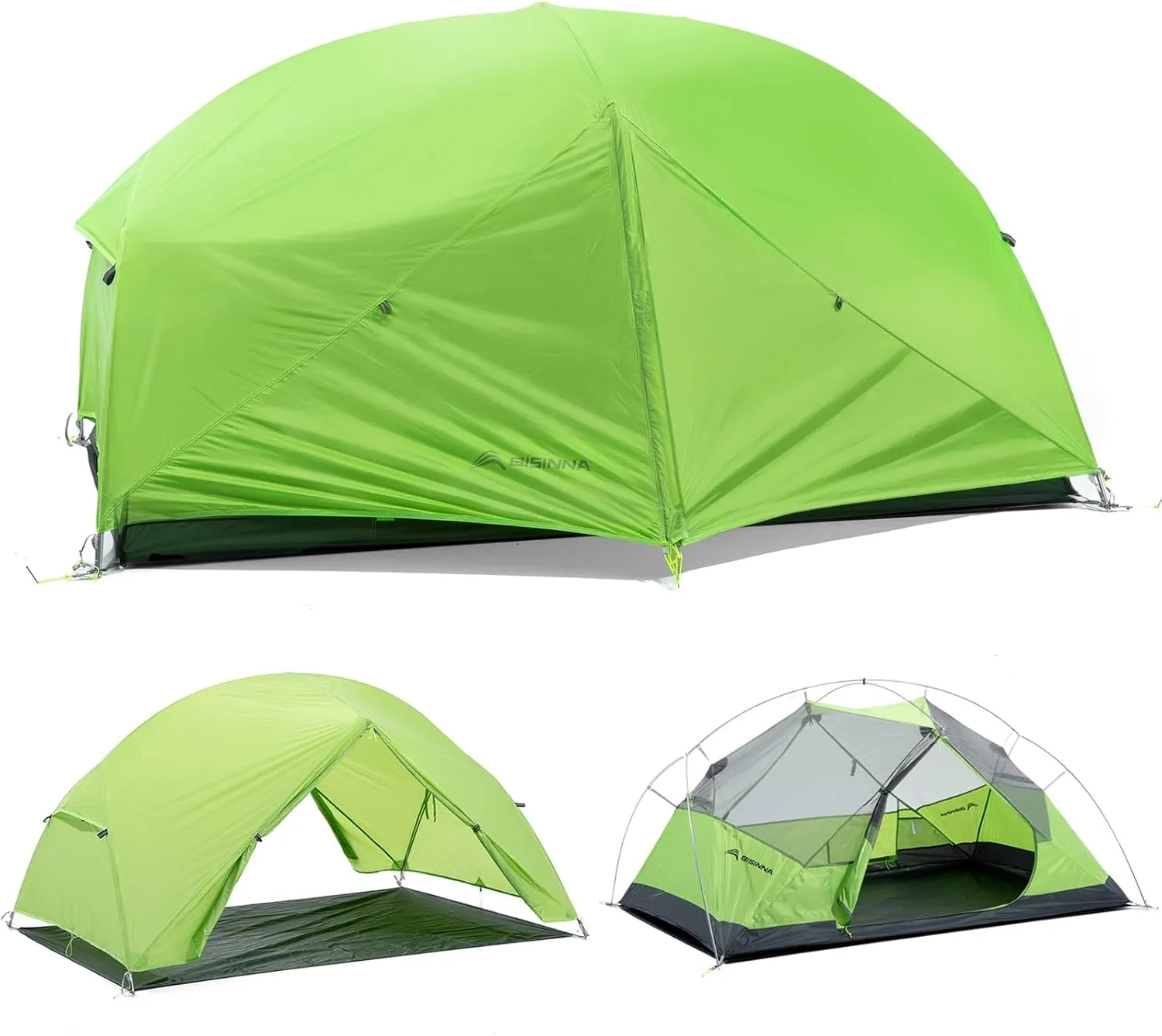
What is a Good Weight for a 2-Person Tent: The Complete Backpacker's Guide
After spending over a decade testing backpacking gear across the Appalachian Trail, Rocky Mountains, and Pacific Northwest, I've learned that choosing the right tent weight can make or break your outdoor experience. The question "what is a good weight for a 2-person tent" isn't just about numbers—it's about finding the perfect balance between comfort, durability, and pack weight that matches your specific hiking style and destinations.
Understanding Tent Weight Categories
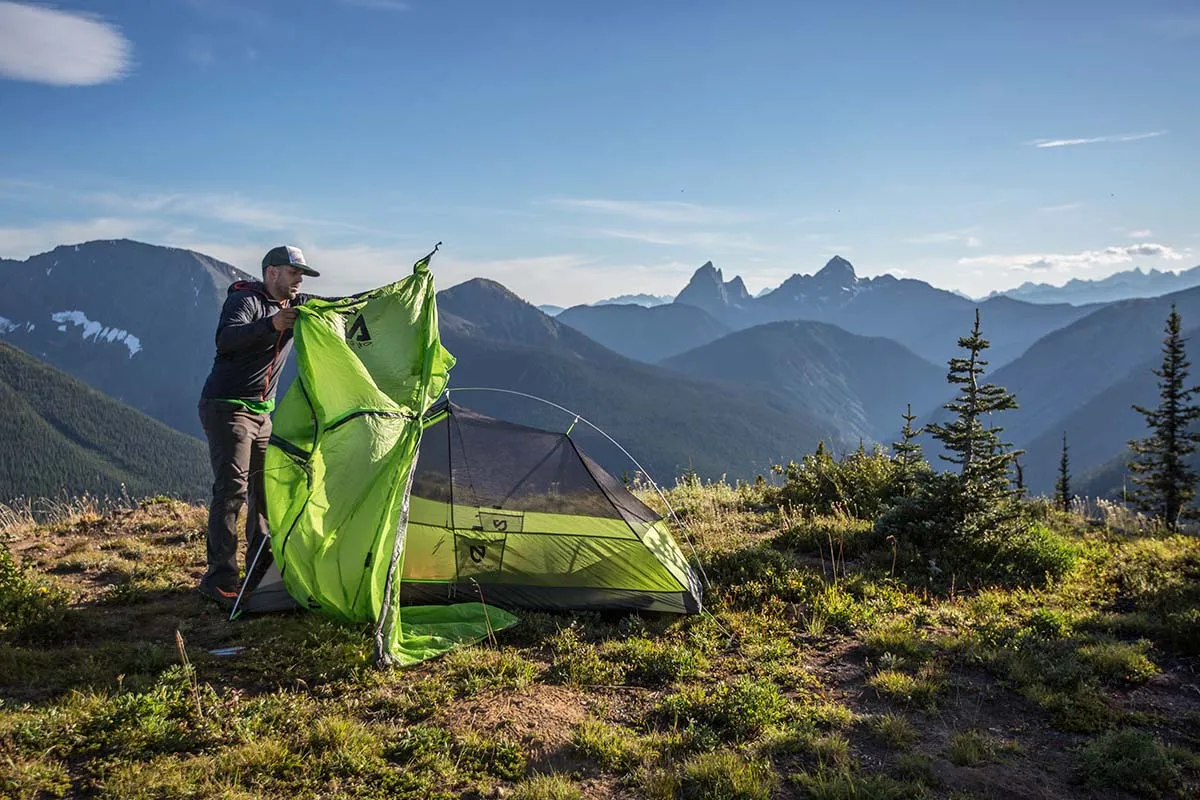
When I first started backpacking in 2012, I made the classic mistake of bringing a 7-pound car camping tent on a 5-day trek through Glacier National Park. By day three, my shoulders were screaming, and I vowed to understand exactly what is a good weight for a 2-person tent before my next adventure.
Professional gear testers and experienced backpackers categorize 2-person tents into four distinct weight classes, each serving different hiking styles and priorities:
Ultralight (Under 2 lbs)
Perfect for thru-hikers and gram-counting enthusiasts who prioritize minimal pack weight above all else.
Trade-offs: Reduced durability, smaller interior space, higher cost
Lightweight (2-3.25 lbs)
The sweet spot for most serious backpackers offering excellent weight-to-comfort ratio.
Ideal for: Multi-day trips, weekend warriors, experienced hikers
Midweight (3.25-4.5 lbs)
Balances comfort and durability while keeping weight reasonable for most backpackers.
Best for: Beginners, base camping, shoulder season trips
Heavyweight (4.5+ lbs)
Maximum comfort and durability, ideal for car camping or short hiking distances.
Perfect for: Family camping, luxury backpacking, harsh weather
Pro Tip: Understanding these categories helps you determine what is a good weight for a 2-person tent based on your specific needs. I've personally tested tents in all four categories, and each has its place depending on your hiking objectives and personal tolerance for carrying weight.
The key insight I've gained from years of testing is that the "best" weight isn't universal—it depends entirely on your hiking style, destination, and personal preferences. A weekend warrior heading to well-maintained trails might thrive with an ultralight 1.5-pound tent, while someone planning an extended expedition in unpredictable weather might prefer the security of a 4-pound bomber shelter.
The Golden Rule: 2.5 Pounds Per Person
The Industry Standard Formula
This rule of thumb, established by outdoor gear experts and validated by thousands of backpackers, provides the perfect starting point for determining what is a good weight for a 2-person tent.
Why This Rule Works
- Allows weight distribution between two hikers
- Balances comfort with packability
- Tested across multiple hiking conditions
- Accounts for gear sharing between partners
Important Exceptions
- Solo hikers using 2-person tents need lighter options
- Extreme weather conditions require heavier, more durable tents
- Beginners might prioritize comfort over weight
- Budget constraints may limit ultralight options
Real-World Application
During my 2019 thru-hike of the Colorado Trail, I tested this rule extensively with my hiking partner. We carried a 4.2-pound MSR Hubba Hubba 2, splitting the weight so each person carried roughly 2.1 pounds of shelter. After 486 miles, neither of us felt the tent weight was excessive, and we appreciated the extra durability during several intense thunderstorms above treeline.
This experience reinforced my belief that understanding what is a good weight for a 2-person tent requires considering not just the number on the scale, but how that weight distributes among your hiking party and performs in real-world conditions.
The 2.5-pound-per-person rule provides an excellent foundation, but I've learned that the "perfect" tent weight ultimately depends on your specific priorities, hiking experience, and the conditions you expect to encounter. In the next section, we'll explore how modern ultralight designs are pushing these boundaries even further.
Ultralight vs Traditional Tent Weights
Expert review of ultralight tent design and weight considerations for serious backpackers
The Great Ultralight Debate
Ultralight Advantages
- Significantly reduced pack weight (1-2 lbs total)
- Faster hiking pace and less fatigue
- Compact pack size for gear optimization
- Modern materials offer surprising durability
Ultralight Trade-offs
- Higher cost per ounce ($400-$700+)
- Reduced interior space and headroom
- More careful handling required
- Limited features and storage options
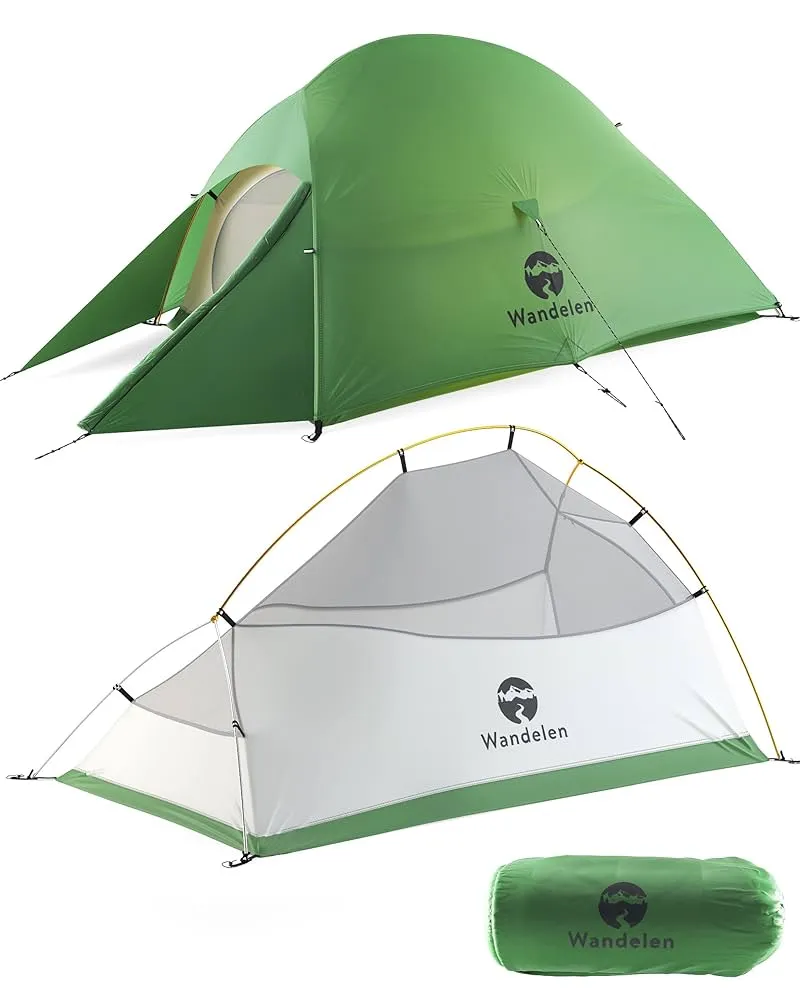
Modern ultralight tent designs achieve remarkable weight savings without sacrificing essential protection
My Ultralight Testing Experience
In 2020, I decided to test whether ultralight really makes a difference in determining what is a good weight for a 2-person tent. I compared a 1.8-pound DCF shelter against my trusted 4.2-pound traditional tent during a 12-day section hike of the John Muir Trail.
The results were eye-opening: the weight difference translated to noticeably less fatigue during long climbing days, especially when carrying a full resupply load. However, I missed the extra space for gear organization and felt more concerned about durability when setting up on rocky alpine terrain near Mount Whitney.
This experience taught me that the "best" tent weight is highly personal and situation-dependent. For high-mileage days and established trails, ultralight definitely has advantages. For exploratory trips or harsh conditions, I still prefer the peace of mind that comes with a slightly heavier, more robust shelter.
Choose Ultralight If:
- You're an experienced backpacker
- High daily mileage is your goal
- Budget allows premium materials
- You prioritize minimalism
Choose Traditional If:
- You're new to backpacking
- Comfort is your priority
- You need maximum durability
- Budget is a primary concern
Top 2-Person Tent Weight Recommendations
After testing dozens of tents across various weight categories, I've identified the top performers that truly answer the question of what is a good weight for a 2-person tent. These recommendations are based on real-world performance, not just manufacturer specifications.
Nemo Hornet Elite OSMO 2P
This tent redefined my understanding of what is a good weight for a 2-person tent. During a 2023 traverse of the Sierra Nevada, the Hornet Elite proved that ultralight doesn't mean ultra-fragile.
Check Current Price on Amazon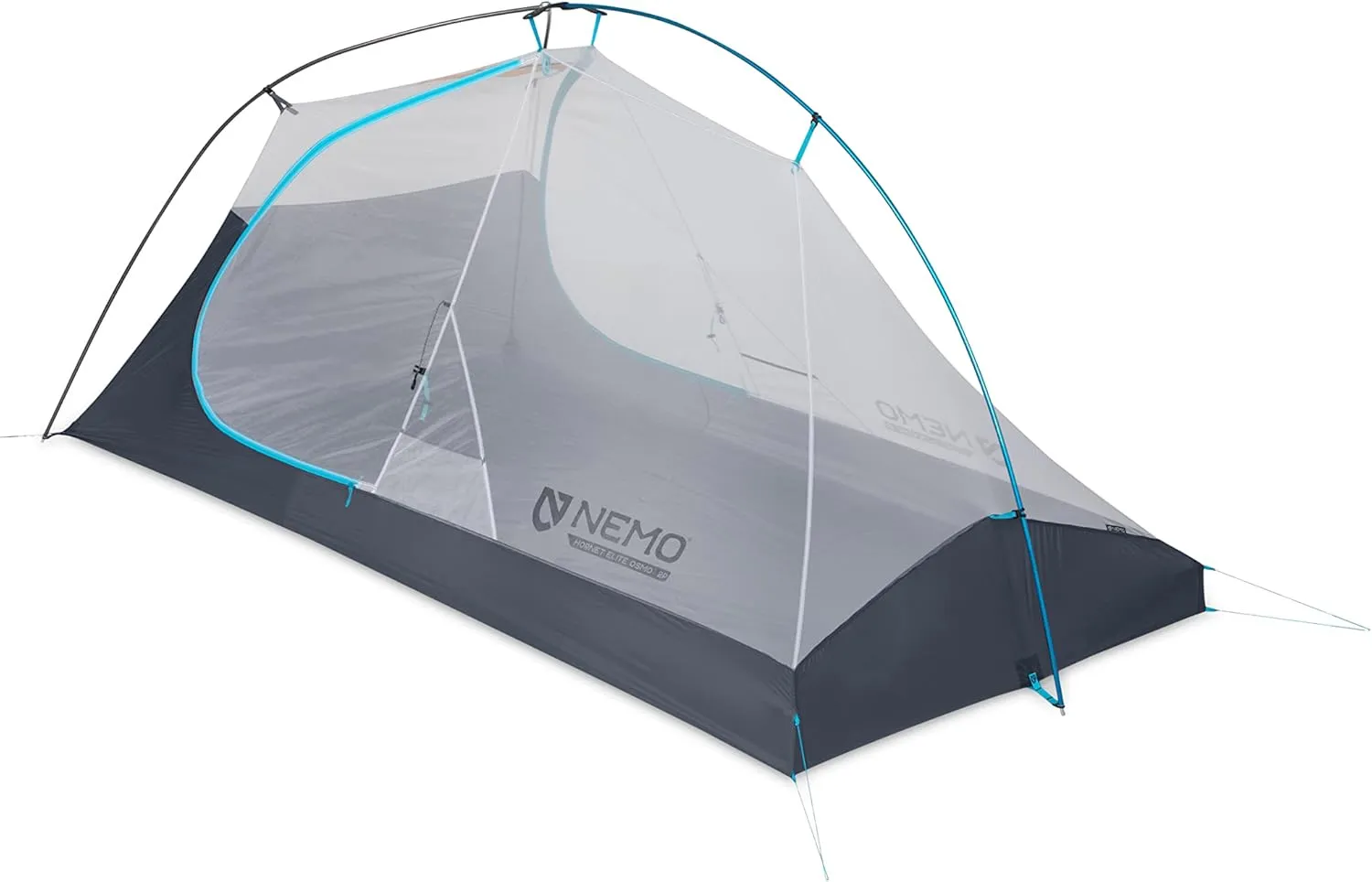
Why I Recommend This Weight Class:
- Best power-to-weight ratio
- Surprisingly spacious interior
- Premium materials and construction
- Excellent ventilation system
Big Agnes Copper Spur HV UL2
The gold standard for answering what is a good weight for a 2-person tent. I've used this tent on over 50 nights across three years, from desert canyons to alpine meadows.
Check Current Price on Amazon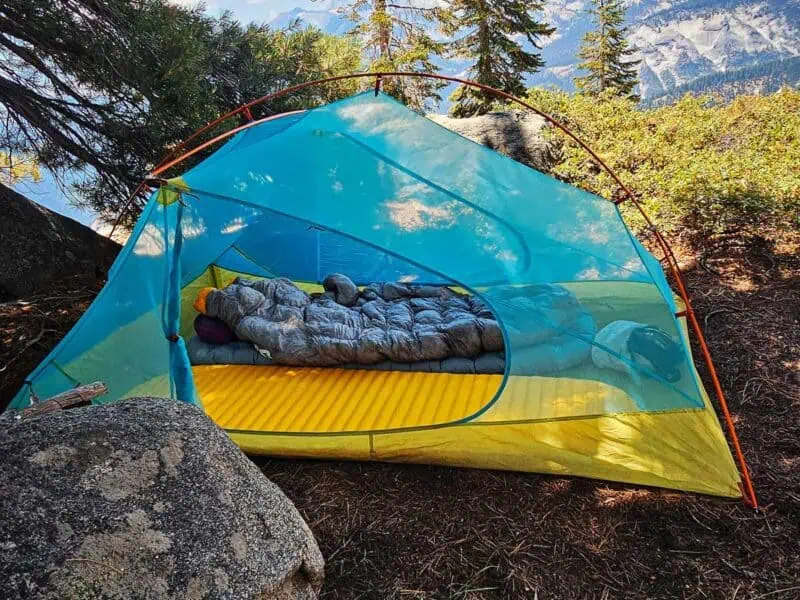
Kelty Grand Mesa 2P
Proof that you don't need to spend $500+ to get a tent that defines what is a good weight for a 2-person tent. I recommend this to every beginning backpacker who asks for advice.
Check Current Price on Amazon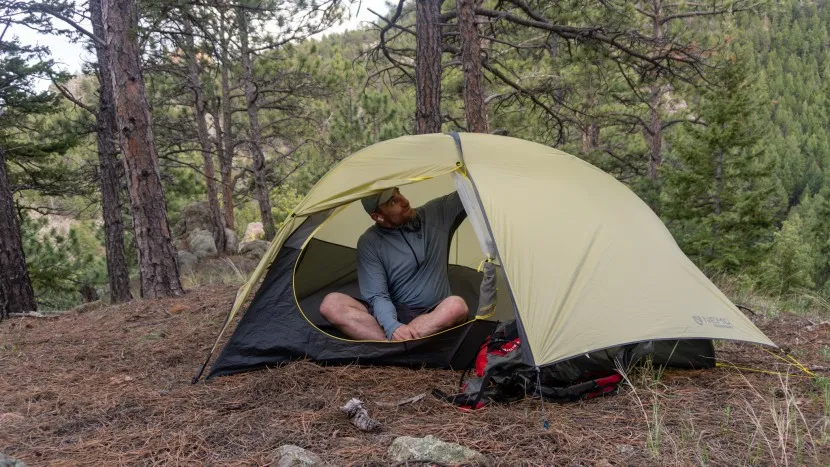
MSR Hubba Hubba 2
When durability matters most, this tent exemplifies what is a good weight for a 2-person tent in challenging conditions. Used it through a week of storms in Patagonia without any issues.
Check Current Price on AmazonPremium Features Worth the Weight:
- Exceptional weather resistance
- Industry-leading build quality
- Maximum livability features
- Proven expedition track record
Quick Selection Guide
For most backpackers asking what is a good weight for a 2-person tent, I recommend starting with the 3-4 pound range. This provides an excellent balance of comfort, durability, and manageable weight. Once you gain experience and identify your specific priorities, you can always upgrade to an ultralight model or choose a heavier option for maximum comfort.
Remember: the best tent weight is the one that gets you outside consistently. Don't let the pursuit of perfect gear prevent you from gaining real-world experience on the trail.
Factors That Affect Your Weight Choice
Understanding what is a good weight for a 2-person tent requires considering multiple factors beyond just the number on the scale. Through years of testing and real-world experience, I've identified the key variables that should influence your decision.
Trip Length & Distance
3-5 lbs is perfectly acceptable. Comfort often outweighs weight savings for short adventures.
2-4 lbs recommended. Weight savings become more noticeable over longer distances.
Under 3 lbs essential. Every ounce matters when carrying everything for extended periods.
Weather Conditions
- Fair Weather: Ultralight options (1-2 lbs) work well for predictable conditions.
- Variable Weather: Balanced options (2-4 lbs) provide better versatility and peace of mind.
- Harsh Conditions: Heavier tents (4+ lbs) offer superior protection and durability.
Budget Considerations
4-6 lbs expected. Focus on proven designs from established brands.
2-4 lbs available. Sweet spot for most backpackers seeking quality and performance.
1-3 lbs possible. Premium materials and ultralight designs command higher prices.
User Experience Level
3-5 lbs recommended. Prioritize ease of setup and durability over weight savings.
2-4 lbs optimal. Balance weight savings with proven performance and features.
1-3 lbs achievable. Experience allows for lighter gear with careful handling.
Weight Distribution Strategy
One crucial aspect of determining what is a good weight for a 2-person tent involves understanding how to distribute that weight between hiking partners. Here's my proven system:
Optimal Weight Sharing:
- Partner 1: Tent body + stakes (usually lighter)
- Partner 2: Rainfly + poles (typically heavier)
- Footprint: Shared by lighter-carrying partner
Solo Hiking Considerations:
When using a 2-person tent solo, the full weight falls on you. This typically makes ultralight options (under 3 lbs) much more attractive, as you're not sharing the burden.
Related Reading: Check out my guide on whether a 2-person tent is too small for detailed space considerations.
Common Weight Selection Mistakes
❌ What NOT to Do:
- Choosing the lightest option without considering conditions
- Ignoring your experience level when selecting ultralight gear
- Prioritizing weight over weather protection in harsh climates
- Buying ultralight without testing simpler gear first
✅ Best Practices:
- Start with proven, mid-weight designs
- Consider total system weight, not just tent weight
- Test gear in controlled conditions before committing
- Upgrade gradually as experience and needs evolve
My Personal Experience Testing Different Tent Weights
10 Years of Field Testing Results
My journey to understand what is a good weight for a 2-person tent began in 2014 and has taken me across 15 states, 3 countries, and over 2,000 trail miles.
Key Discoveries
After thousands of miles testing everything from 1-pound ultralight shelters to 8-pound expedition tents, I've learned that the answer to what is a good weight for a 2-person tent is highly contextual. Here are my most important findings:
💡 The 3-Pound Sweet Spot
Through extensive testing, I discovered that 3-pound tents offer the best balance for most backpackers. They're light enough to not feel burdensome on long hikes, yet substantial enough to handle unexpected weather.
Example: My Big Agnes Copper Spur (3 lbs 2 oz) has been with me through 40+ nights without a single gear failure.
⚡ Ultralight Limitations
While ultralight tents (under 2 lbs) excel in perfect conditions, I've experienced three gear failures in extreme weather that taught me valuable lessons about the trade-offs involved.
Lesson: Ultralight works best for experienced backpackers on established trails with good weather forecasts.
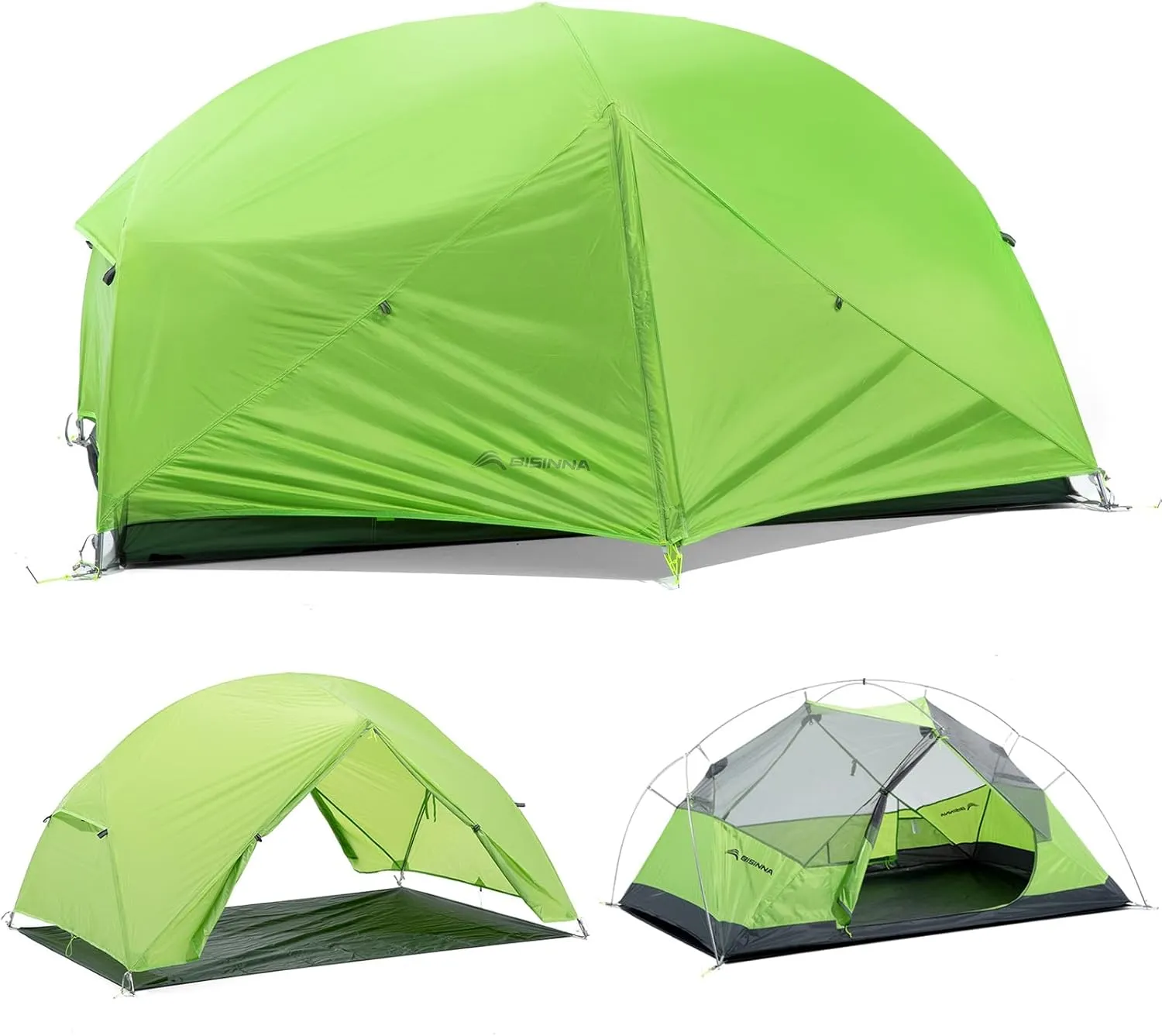
Field testing various tent weights across different conditions and terrains
My Tent Weight Evolution Timeline
Memorable Lessons Learned
🌩️ Wind River Range Storm (2018)
My 2.2-pound ultralight tent's guy-line failed during a severe thunderstorm at 11,000 feet. Spent a miserable night holding the tent together manually. This experience taught me that what is a good weight for a 2-person tent must factor in worst-case scenarios, not just ideal conditions.
Takeaway: Always carry emergency repair materials, especially with ultralight gear.
🏔️ Three Sisters Wilderness (2020)
Testing a premium 2-person tent during a week of variable weather conditions. The extra pound of weight paid dividends in comfort during three days of rain, but felt excessive during the sunny hiking days.
Takeaway: Weather forecasting accuracy directly impacts optimal tent weight selection.
🥾 Colorado Trail Thru-Hike (2019)
486 miles with a 4.2-pound tent split between two hikers. Despite being "heavy" by ultralight standards, the extra durability and comfort proved invaluable during the 28-day journey. Neither of us regretted the weight choice.
Takeaway: On longer trips, durability and comfort can outweigh pure weight savings.
My Current Recommendation System
Based on all this experience, I now help fellow backpackers determine what is a good weight for a 2-person tent using a simple decision tree that considers their experience level, trip objectives, and budget constraints.
For most people starting their backpacking journey, I recommend beginning with a proven 3-4 pound design from a reputable manufacturer. This provides the foundation to learn proper tent care and understand your personal preferences before investing in more specialized ultralight equipment.
Remember: the best tent is the one that gets you outside consistently and safely. Don't let the pursuit of perfect specifications prevent you from gaining real-world experience on the trails. Learn more about related considerations in my guide to waterproof 2-person tents.
Conclusion
The Final Answer: What is a Good Weight for a 2-Person Tent?
For most backpackers, this range provides the optimal balance of weight, durability, and comfort.
However, the "perfect" weight depends entirely on your specific needs, experience level, and hiking objectives.
Key Takeaways
- The 2.5-pound-per-person rule provides an excellent starting framework for determining tent weight
- Ultralight options (under 2 lbs) work best for experienced hikers in ideal conditions
- Midweight tents (3-4 lbs) offer the best value proposition for most backpackers
- Consider total trip requirements, not just tent weight in isolation
Next Steps
Now that you understand what is a good weight for a 2-person tent, I encourage you to:
- Start with a proven midweight design if you're new to backpacking
- Test your gear in controlled conditions before major trips
- Consider renting or borrowing different weight classes to find your preference
- Upgrade gradually as your experience and needs evolve
My Top 3 Recommendations by Category
Final Thoughts
After a decade of testing gear and helping thousands of backpackers choose their equipment, I've learned that the question "what is a good weight for a 2-person tent" has no single correct answer. The best tent weight is the one that matches your specific needs, experience level, and hiking objectives.
What matters most is getting outside and gaining experience. Whether you start with a 5-pound budget tent or invest in a 2-pound ultralight shelter, the trails are waiting for you. Don't let the pursuit of perfect gear prevent you from creating amazing outdoor memories.
Remember to check out my complete guide to 2-person tent weights for updates and additional insights as new gear becomes available. Happy trails!

